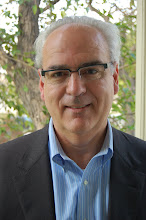Just when I think that the administration of the Los Angeles County Department of Children and Family Services (DCFS) is on right path with initiatives to keep families intact with supportive services, to move children in out-of-home care back into their families, extended families or adoptions, they come up with a policy that flies in the face of good practice.
The Department of Child and Family Services and its Director, Trish Phloehn, are insisting that they will not contract with foster family agencies (FFA) who do not certify their foster families for adoption. For those unfamiliar with the process, this direction means the foster family will be required to go through a process for certification that is similar to the process they already go through to be certified foster families. The major difference is that they must be willing to declare that they are interested in adoptions.
At first blush, this would seem to be an improvement in service delivery because it would cut down the time that it takes for a foster home to become an adoptive home. In fact, DCFS is citing this as a reason for wanting it in the contract. They are also saying that an adoptive home study is a higher standard than a foster home study even though FFAs report that they are just as exacting for their foster homes as the adoptive homes. And finally, DCFS is saying they do not want a foster family who wants to adopt to fail the certification and approval process to adopt a child even though DCFS can not cite, nor can the FFAs cite, an instance where this has happened.
What they fail to take into consideration is that foster care homes for some children are temporary homes used to care for the child until reunification or permanency can be worked out. A number of foster care homes would like to assist children in this transition period of their lives, but do not have a desire to adopt. A number of foster care families who entered the foster care system with the idea they did not want to adopt have changed their minds after being foster parents to a child or children. In other words, they fell in love with the child or children and decided to adopt. Demanding that they be certified to adopt prior to accepting foster care children may have stopped these families from being foster parents. The Department could have closed the door of opportunity for adoption at a later date.
Couples like my wife and I who are over 65 who might have the time to do foster care would be eliminated because we are too old to be certified, or because we are not interested in adopting at this stage in our lives. Some wonderful older couples, who take in babies and toddlers while reunification is being worked through, would be eliminated from the pool of potential foster care homes. If, in fact, a foster home does want to adopt, and an infant or toddler is in their care while the biological mother is getting clean and sober, it puts the foster parent in competition with the mother. This unintended competition is not supportive to the reunification process.
Hillsides does not have a foster family agency, however, at one time Hillsides did take in infants and toddlers whose mothers were addicted to drugs and alcohol and worked with them to help them regain their babies. This was one of the most successful programs we operated, because these mothers did not want to be addicted, wanted to get clean and sober, and wanted to regain their babies. Most of the mothers were able to get their children back within 12 months. One of the things we had to do with our own child care staff is to remind them that they were to be role models to these mothers, they were not to put up barriers to helping the mothers bond with their children. Even though they also loved these children, their job was to help the mother regain custody. This would be a difficult task for a foster care mother who wanted to adopt the child she was caring for.
The Department needs both kinds of foster care homes. The Department will have children who will not be able to return to their families and need a permanent home where adoption would be the outcome. Several types of foster care homes exist: those very much interested in adopting children, those that may grow into that frame of mind as the child has lived with them, or those that may have gotten into foster care with the expressed intention of wanting to adopt.
Unfortunately, the Director of DCFS has persuaded the Los Angeles County Board of Supervisors to buy into this policy without hearing some of the strong arguments against doing this. We now have a situation where the Board of Supervisors has publicly supported its DCFS Director, and it is difficult for them to reverse their decision.
The direction taken should not be either or, but a thoughtful discussion on solutions that will meet the needs of all parties involved.
Friday, November 14, 2008
Requiring Foster Family Certification for Adoptions May Close Some Family Doors
Subscribe to:
Post Comments (Atom)



No comments:
Post a Comment